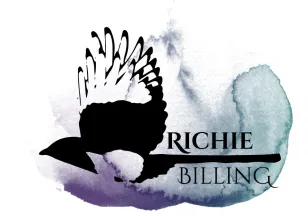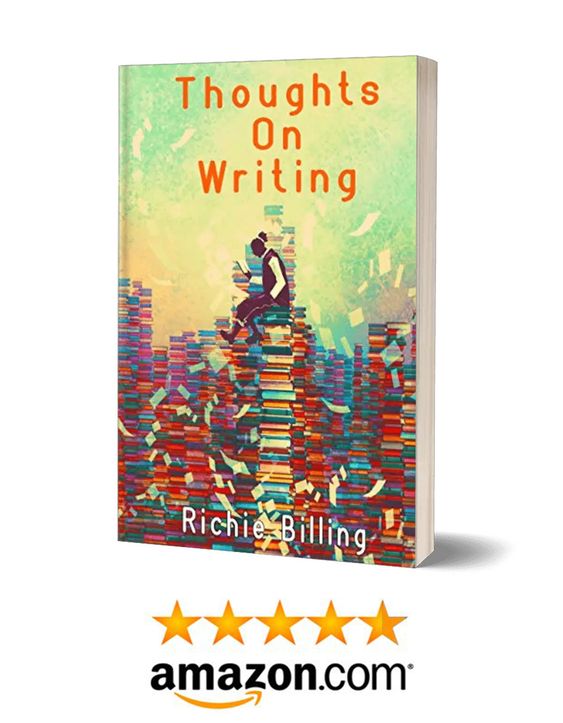When it comes to looking at how to improve your writing skills, we can sometimes feel a bit lost. With so much to cover and so many different suggestions, where do you start?
In this detailed guide, I’m going to show you 8 easy ways you can improve your creative writing abilities. They range from the obvious like reading and practising to joining writing groups, such as my community of writers.
However, while they may seem obvious, do not dismiss them. There are unique approaches you can take to ensure you get the most out of each one. For instance, reading analytically. But more on that below.
If you know of any other good ways to improve your writing skills, please share them in the comments below!
Why Is It Important To Improve Your Writing Skills?
Much is learned from life’s harsher lessons. When it comes to looking back on previous pieces of writing, we can feel embarrassed or ashamed. Instead, I say look back with pride. Look at it with the reassuring feeling that you’re able to see what’s wrong with it, what its weaknesses are, how you can change it—this shows you’ve improved your writing skills.
You know that next time you will do better and appreciate that in recognising all of these things, you’ve grown and improved and you’re now a better writer.
Here are a few of the most effective ways I’ve learned that help me to improve my craft.
1. Read

”If you don’t have time to read, you don’t have the time (or the tools) to write.” Stephen King.
Reading teaches you the craft of writing. You learn new words, new perspectives, sentence structure, pacing, characterization, plotting techniques, worldbuilding approaches. You see the ‘writing rules‘ and how they can be broken. Reading empowers you with knowledge drawn from first-hand examples.
Here’s another insightful quote from George RR Martin:
“The most important thing for any aspiring writer, I think, is to read! And not just the sort of thing you’re trying to write, be that fantasy, SF, comic books, whatever. You need to read everything. Read fiction, non-fiction, magazines, newspapers. Read history, historical fiction, biography. Read mystery novels, fantasy, SF, horror, mainstream, literary classics, erotica, adventure, satire. Every writer has something to teach you, for good or ill. (And yes, you can learn from bad books as well as good ones — what not to do).”
George RR Martin
As well as enjoying (or hating a story) it’s important to pay attention to the craft of how it’s written. If you’re unsure of a word, take the time to look up the definition and a few example sentences. With a critical eye observe word usage, syntax, structure, plotting.
To get through a few more books, you could try audiobooks or podcasts. Stephen King says he listens to them while driving, a much more productive alternative to listening to Led Zeppelin IV for the umpteenth time. There’s a website (and also an app), audiobooks.com, which has few free ones. You’ve nothing to lose in trying it.
And it’s definitely one of the most effective ways when it comes to exploring how to improve your writing skills.
2. Practice
You practice your craft as much as you can. With everything life has to throw at us it can be hard to find the time and motivation to write. But something is better than nothing. Every word is a step in the right direction.
Take a leaf out of Joanna Cannon’s book (excuse the pun). While working as a psychiatric nurse in an underfunded NHS she wrote her debut, bestselling novel, cramming in words before work, after work and during breaks.
Remember, you’re practising and improving. Don’t put the pressure of trying to write a good book on your shoulders. Allow yourself the freedom to experiment and explore.
“The more you write, the better you’ll get. But don’t write in my universe, or Tolkien’s, or the Marvel universe, or the Star Trek universe, or any other borrowed background. Every writer needs to learn to create his own characters, worlds, and settings. Using someone else’s world is the lazy way out. If you don’t exercise those “literary muscles,” you’ll never develop them.”
George RR Martin
3. Listen
Lessons linger around every corner, but you must seek them. Everyone knows something you do not and there’s no shame in that. Those that succeed, listen. Begin with the basics and build from there. Read books on writing (like A Fantasy Writers’ Handbook), watch lectures on YouTube, sign up for webinars, courses, workshops. Join forums or writing groups, discuss, share, critique.
You’re learning a new craft, and unless you’re James Joyce reincarnate you must take time to learn. Carpenters, electricians, doctors, lawyers go through years of training to master their fields. So must you.
They say it takes 10,000 hours of practice to master something. That’s about 90 minutes a day for 20 years. A daunting prospect, but achievable. Put in the work and trust that everything else will follow.
If you’d like to get started with workshops and lectures, here’s my free webinar on how to write a fantasy novel. For me, resources like this are one of the best ways to improve your writing skills.
4. Experience

The real world has the power to inspire you. Go hiking, walk around your park, even just walk down your street. Catching a glimpse into the personal life of a stranger can provoke ideas for characters and development, so can seeing an unusual building or landmark.
Seeing the diversity in the appearance of people is a great source for character development. It’s remarkable how unique we all look; something I certainly take for granted. And it’s the little details that make wonderful stories.
Take a pen or paper, or make notes on your phone. Who knows when ideas will pop into your head.
5. Embrace failure
In failing we learn our weaknesses and better understand ourselves. It’s part of the process. So embrace it and absorb all of the feedback you can, whether from editors or beta readers.
Don’t let those lows extinguish your desire and enthusiasm. You can write and you have a story worth telling. Accept that you’re not going to get it right the first time, but be determined to keep going and succeed. When you finally achieve your goal it’ll feel better than taking any drug.
So don’t let rejection dampen your spirits. Use it to help you improve your writing skills.
6. Keep faith
This one’s linked to failing. No matter how down you feel, how ill-motivated you are, how low your confidence may be, always cling to that flame of hope.
Savour the little successes, as slight as they may be. A new subscriber to your mailing list, a few lines of feedback in a rejection email, achieving your daily word count, even just writing a word (some days it can be that hard). The world may say no, but the only person who can blow out that hopeful flame is you.
Further reading – Mental Health In Fantasy Books
7. Defeat procrastination
This is perhaps the most personal one of all for me. I’ll check my emails and 45 minutes later there I am scrolling through Twitter, a blank page before me.
Remove temptations. Turn off the wifi, leave your phone in another room. Tackle whatever defeats you head-on, and be bold in your steps. No half measures, as everyone’s favourite meth cook Heisenberg would say. Allow your mind to focus, to forget, to engage.
Further reading – 11 Essential Ways To Stop Procrastinating
8. Join An Online Writing Group
One of the best approaches I’ve come across when it comes to looking for ways to improve your writing skills is to collaborate and work with fellow writers.
They can provide you with honest feedback, a crucial analysis of your story structure, characters, theme and premise, and give you the vital feedback you need to take your story to the next level.
I find that whenever I’ve worked with someone who’s provided me with feedback, that I improve my writing skills. I learn new approaches, see things in different ways, experiment with new styles or gain greater confidence in my voice.
And that’s why I’ve created my own writing community, to enable other writers to share in the same benefits that I enjoy every day.
While we congregate in our private Facebook group, we also have a dedicated Discord channel within which you can chat with fellow writers, arrange beta reading and discuss ideas. This can only help you improve your writing skills.
To join, just click below.
Get More Help With How To Improve Your Writing Skills
If you’d like any further support and guidance with improving your creative writing ability, then there are lots of other resources that you can take advantage of.
Chief amongst them is my fantasy writing podcast, The Fantasy Writers’ Toolshed.
While this has a focus on the fantasy genre and its many subgenres, we cover all kinds of general writing subjects, such as creating conflict, plus episodes on how to get published.
To listen, just click below.
More Guides and Resource On How To Improve Your Writing Skills
If you’d like to read up on some other ways you can improve your writing skills, then I have some other related guides you may enjoy, as well as tips from some other reputable sources:
- Head here to learn more about viewpoint, tense and narrative distance
- For more general writing tips, head here, or go here for fantasy writing advice
- If you’d like help finding publishers and book reviewers, check out my writing tools page.
- Learn more about improving your writing flow
- If you’re into academic writing, this guide will help you
If you have any questions about how to improve your writing skills, please don’t hesitate to contact me.
- 5 Tips to Help Your Child Learn and Succeed at Primary School - February 26, 2024
- The Advantages Of Using An AI Essay Typer Alternative - February 14, 2024
- Advice On Getting Help With Your Homework - January 26, 2024






These are great! 7 is a struggle for me as well.
Thank you! I’m glad you found them useful. Don’t get me started on procrastination. I’m doing it right now…
“They say it takes 10,000 hours of practice to master something”… And there is NO science/facts to back that up, even if it were true that all people learned skills a the same rate, which is also untrue. We need to stop spreading this, ‘It takes ten thousand hours to become good’ nonsense and just say, ‘Work at it, and you’ll get better.’
“Accept that you’re not going to get it right first time, but be determined to keep going and succeed.” This is so important. I see a lot of younger people now who grew up being told they could do literally anything ‘if you just put your mind to it,’ and when they try to do something but don’t get it perfect on the first attempt, they get frustrated and give up, because they think just wanting to do something should make them perfect at it without any effort to acquire the skill.
It’s more like you need to write 100,000 words to blow all the crap out of your system. It’s just a ballpark of when you will have hit your stride and gained an experience level, and can start developing your personal style more readily. As you say, it’s different for everyone, but a good guideline and something concrete you can shoot for.
Useful advise, simple (I like this best!) but good to be reminded. Thank you for sharing.
I greatly disagree with GRR Martin’s take on fanfic. When you write fanfic, you are still gaining writing skills, learning character development, plot, theme, world-building beyond that of the original setting… all things which let you improve your skills in language and storytelling. Is it a crutch? Sure. If someone needs an actual crutch, are you going to yank that away from them? No, that’d be dickish. I think of fanfic as more of a sandbox environment, where you can build whatever you want based on whatever you want. What if this event happened instead? What if I want these two characters to interact? Do it! The human brain is designed for running this kind of simulation! And here’s the thing… sometimes great works can come out of the things you build based on someone else’s foundation. I hate to point to 50 Shades as an example, but it’s success can’t be denied. Friends of mine have converted Gargoyles and TMNT fanfics into published books; it’s just a couple of steps away from being original work once you cut some of the connections. One friend has basically taken two characters she likes to write, renamed them, put them in a humanized AU and made the setting a tech-advanced alien planet, with a society based on ancient Egypt. And it’s incredible, and resembles nothing of the original other than the personalities of the characters. Plus, she’s French, and this experience, with a little guidance, is helping her learn to write in a second language. I’ve encountered and helped numerous people who wanted to write and share their stories, but were still in the process of learning English to the point of sounding natural. Again, fanfic’s a way to help them gain that experience in a way that keeps them motivated. I can’t stress how so, so important that is to learning! So people like GRR Martin saying, “No, go make your own,”… that’s elitist dickbaggery. It’s right up there with “Do it right the first time or don’t do it at all.”
Pingback: 7 Ways To Improve Your Writing by Richie Billing - Celthric
“They say it takes 10,000 hours of practice to master something.” You do know this is just something one person said many years ago (without any evidence to support it), and a lot of people have just been parroting ever since (also without any evidence to support it, beyond, ‘They say you need ten thousand hours of practice…’), right? At the very least, it should be obvious that not every person acquires new skills at the same pace, so what takes one person ten thousand hours to master may take another twenty thousand and a third only one thousand.